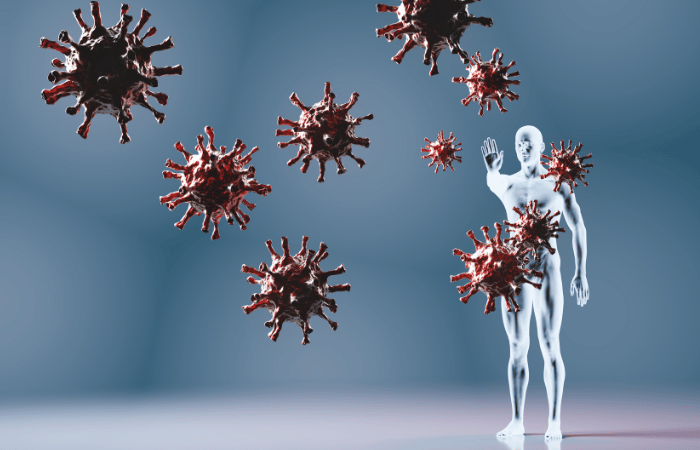Polatuzumab vedotin-piiq is approved by USFDA for previously untreated diffuse large B-cell lymphoma, not otherwise specified, and high-grade B-cell lymphoma
May 2023: For adult patients with high-grade B-cell lymphoma (HGBL), not otherwise specified (NOS), or diffuse large B-cell lymphoma (DLBCL) who have not previously received treatment and who have an International Prognostic Index (IPI) score of 2 or higher, the Food and Drug Administration has approved polatuzumab vedotin-piiq (Polivy, Genentech, Inc.).
The POLARIX (NCT03274492) trial, which included 879 patients with previously untreated large B-cell lymphoma and an IPI score of 2–5, served as the foundation for the approval. The trial assessed the superiority of replacing vincristine in the R-CHOP regimen (rituximab, cyclophosphamide, doxorubicin, vincristine, and prednisone) with polatuzumab vedotin. For six 21-day cycles, patients were randomly assigned (1:1) to receive either polatuzumab vedotin plus R-CHP (pola + R-CHP) or R-CHOP. Both arms then received two more cycles of rituximab alone. The most common diagnoses were HGBL (11%), NOS (84%) and de novo DLBCL.
The investigator-assessed progression-free survival (PFS) was used to determine effectiveness. PFS in the pola + R-CHP arm was statistically substantially longer, with a hazard ratio (HR) of 0.73 (95% CI: 0.57, 0.95; p = 0.0177). Modified event-free survival was significantly improved in this arm (HR 0.75; 95% CI: 0.58, 0.96; p=0.0244). In the final analysis, there was no discernible change in the complete response rate or overall survival (HR 0.94; 95% CI: 0.67, 1.33).
Aside from laboratory abnormalities, peripheral neuropathy, nausea, fatigue, diarrhoea, constipation, alopecia, and mucositis were the most frequent adverse reactions with pola + R-CHP (20%). Lymphopenia, neutropenia, hyperuricemia, and anaemia were grade 3 to 4 laboratory abnormalities (10%). In 53% of patients, peripheral neuropathy either formed or got worse, and in 58% of patients, it got better after a median of 4 months. 34% of patients experienced serious adverse events, including pneumonia and febrile neutropenia.
In conjunction with R-CHP, the recommended dosage of polatuzumab vedotin is 1.8 mg/kg administered intravenously every 21 days for six cycles. Antihistamine, antipyretic, and prophylactic granulocyte colony-stimulating factor administration to patients is advised.
Susan Hau is a distinguished researcher in the field of cancer cell therapy, with a particular focus on T cell-based approaches and cancer vaccines. Her work spans several innovative treatment modalities, including CAR T-cell therapy, TIL (Tumor-Infiltrating Lymphocyte) therapy, and NK (Natural Killer) cell therapy.
Hau's expertise lies in cancer cell biology, where she has made significant contributions to understanding the complex interactions between immune cells and tumors.
Her research aims to enhance the efficacy of immunotherapies by manipulating the tumor microenvironment and exploring novel ways to activate and direct immune responses against cancer cells.
Throughout her career, Hau has collaborated with leading professors and researchers in the field of cancer treatment, both in the United States and China.
These international experiences have broadened her perspective and contributed to her innovative approach to cancer therapy development.
Hau's work is particularly focused on addressing the challenges of treating advanced and metastatic cancers. She has been involved in clinical trials evaluating the safety and efficacy of various immunotherapy approaches, including the promising Gamma Delta T cell therapy.
- Comments Closed
- May 2nd, 2023






antibody-drug conjugate lymphoma, CD79b-targeted therapy, high-grade B-cell lymphoma treatment, POLARIX trial results, polatuzumab vedotin FDA approval, Polivy frontline DLBCL, R-CHP chemotherapy regimen, untreated diffuse large B-cell lymphoma
CancerFax is the most trusted online platform dedicated to connecting individuals facing advanced-stage cancer with groundbreaking cell therapies.
Send your medical reports and get a free analysis.
🌟 Join us in the fight against cancer! 🌟
Привет,
CancerFax — это самая надежная онлайн-платформа, призванная предоставить людям, столкнувшимся с раком на поздних стадиях, доступ к революционным клеточным методам лечения.
Отправьте свои медицинские заключения и получите бесплатный анализ.
🌟 Присоединяйтесь к нам в борьбе с раком! 🌟